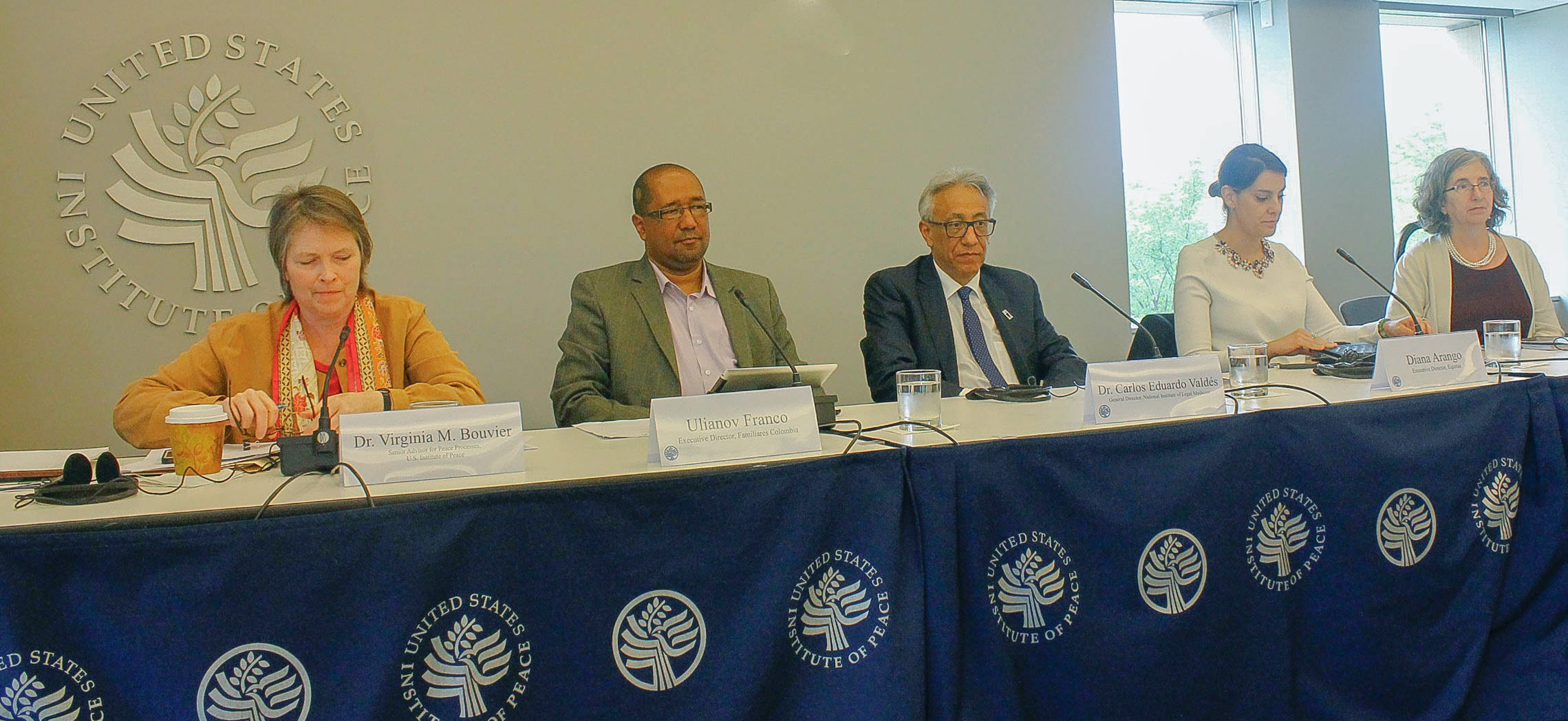U.S. Institute of Peace and Latin America Working Group Education Fund
April 22, 2016

Remarks by Lisa Haugaard, Latin America Working Group Education Fund
The new agreement offers a historic opportunity to provide answers to the families of the disappeared.
Like all peace accords, the promise is only met if there is vigorous implementation that is carried out with the participation of the victims. Colombia has the advantage of an organized effort by valiant organizations of family members of the disappeared and human rights groups (the Mesa or Working Group on Forced Disappearances), these recent commitments from the Colombian government and the FARC at the table in Havana, and substantial technical capacity within Colombia.
What now is needed is follow through carefully consulted with victims, including for the search process, investigations, reparations and the return of loved ones remains with dignity. There must also be adequate protection for victims of forced disappearance, who continue to experience to this very day threats and attacks intended to stop their efforts to find truth and justice.
And the international community has a role to play in implementing this important agreement. This is a daunting and frankly expensive task due to the technical nature of the response needed and the enormous scale of forced disappearances. It would be most helpful to have international support for the new search mechanism, for investigations, and for forensic efforts. It is important not only to fund governmental efforts to implement this part of the peace accords but also to fund victims, human rights and independent forensic initiatives. There must be a robust civil society effort to monitor, verify and be directly involved in implementing the accords.
The United States government in particular can also help by declassifying, for the truth commission to come and for the public, the vast amount of information that it has on the conduct of the war, the operations of all of the actors in the conflict—some of which can help to reveal the truth about disappearances. The United States also needs to seriously reflect upon the large numbers of forced disappearances that took place during the Plan Colombia years—many by paramilitary groups, sometimes with collaboration by state actors or acts of omission by the state—when assessing the impact of Plan Colombia and U.S. security assistance.
Beyond progress in finding the missing, it is absolutely essential to achieve more progress in justice for cases of disappearances, as Ulianov Franco of Familiares Colombia has stressed.
It is also urgent to have a more extensive open discussion in Colombia about who was disappeared, who disappeared them, who allowed it to happen and why. Forced disappearances have been used as a tool by different armed actors, including paramilitaries, guerrillas and state actors, to control communities and to silence dissent by eliminating the leadership of social movements and community organizations, instilling fear in those left behind. Disappearances is the hidden crime, intended to bring silence. To close this chapter of history, Colombia needs to open the book on disappearances, talk about them, discuss them, bring them out into the open. Thanks so much to all the participants today for their inspiring role in doing just that.

